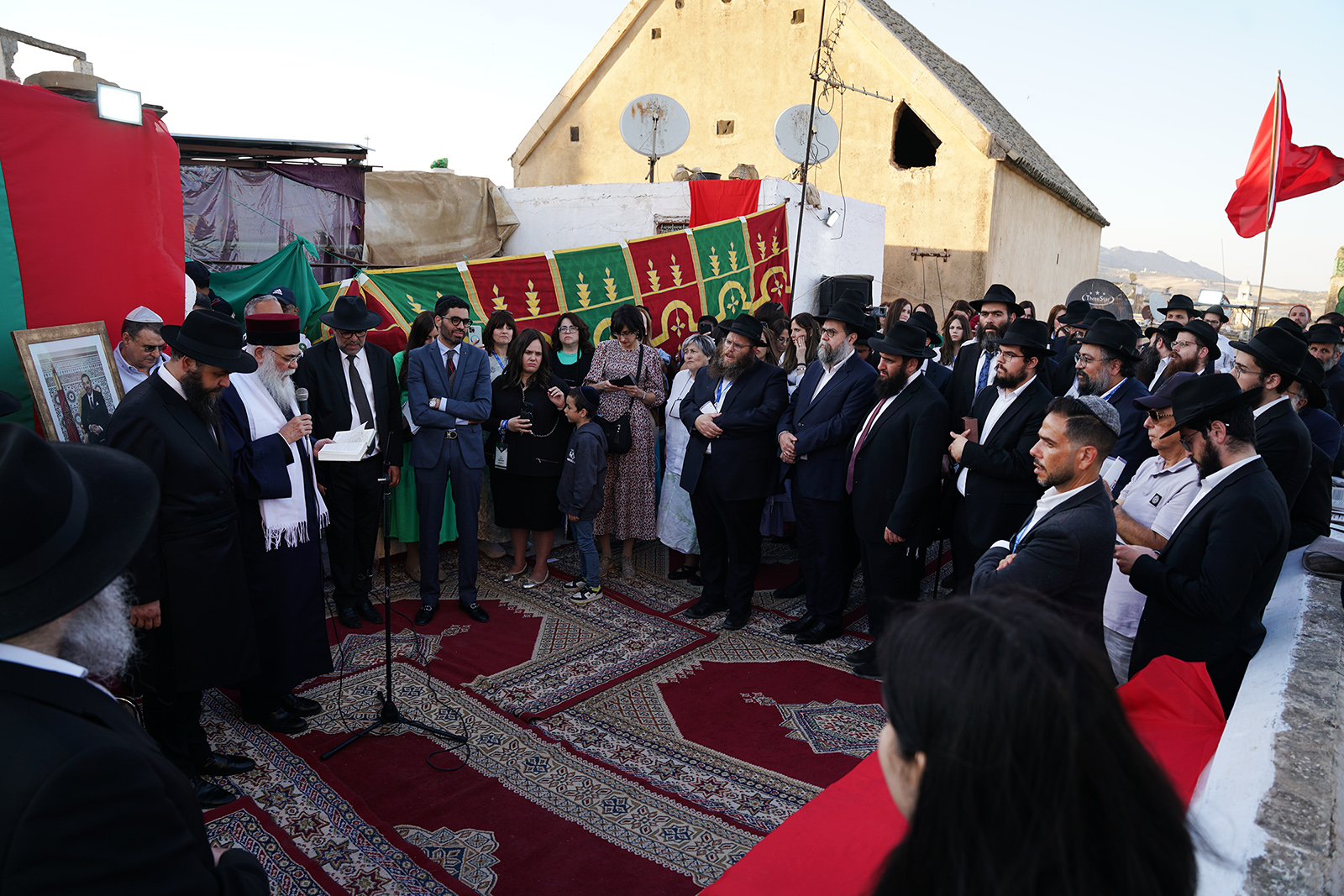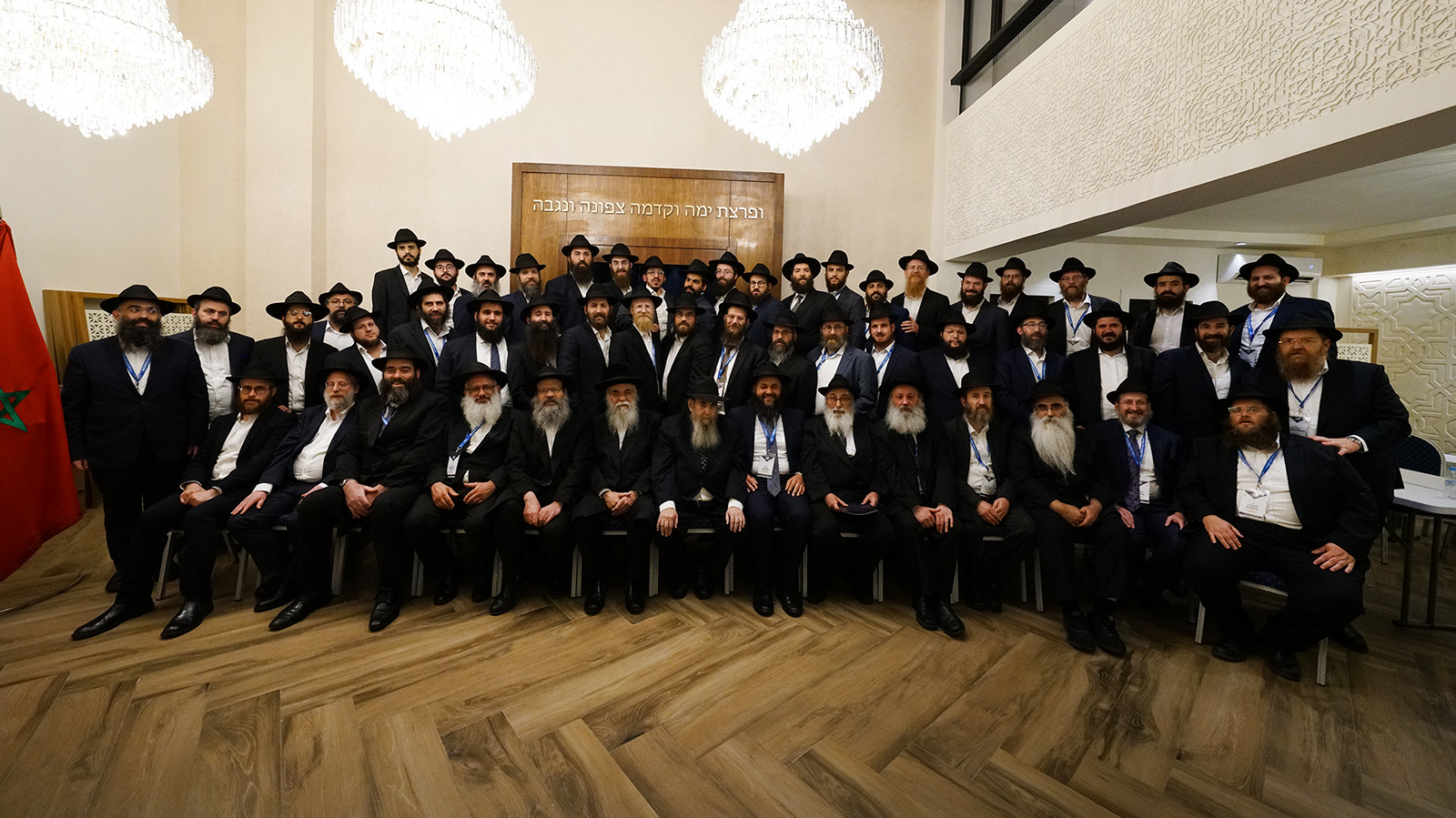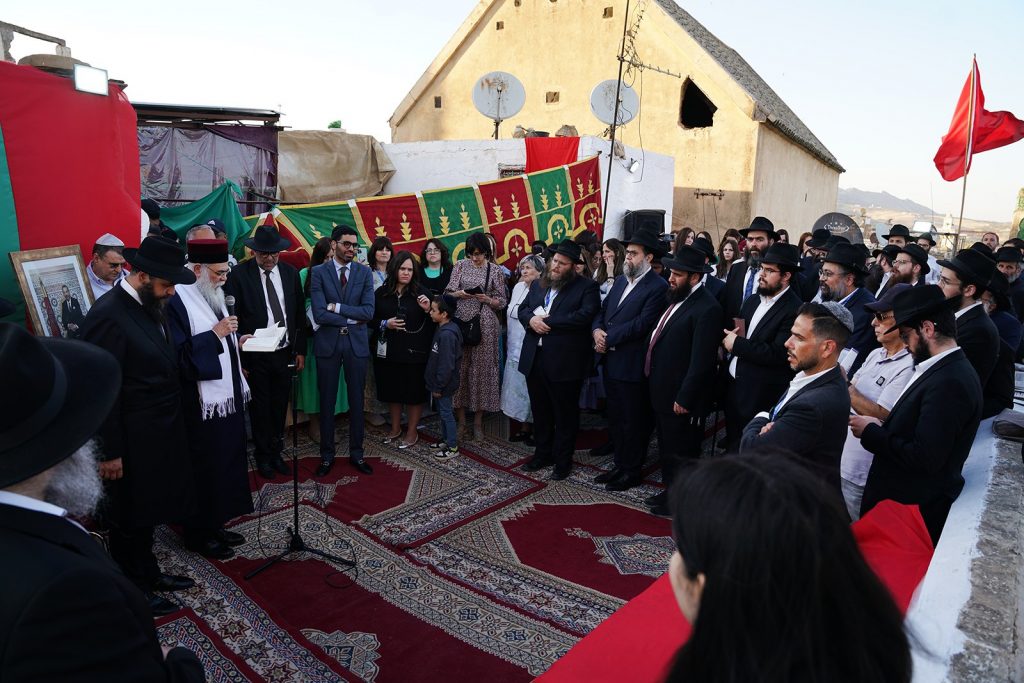
(RNS) — Dozens of rabbinic families affiliated with the Chabad-Lubavitch Hasidic movement gathered in Casablanca, Morocco, last week for a conference aimed at Chabad leaders serving small Jewish communities across Africa, the Middle East and Europe.
They came from 40 different countries, some making the short hop from mainland Spain or its Canary Islands, others coming from as far as Zambia.
“A criteria to come to participate in this conference was to come from a community where you’ve had to schlep kosher food in a suitcase,” Rabbi Mendy Chitrik, a Chabad rabbi based in Istanbul and the director of the Alliance of Rabbis in Islamic States, joked to Religion News Service.
In truth, the gathering had no such entry bar, but it is a reality that strictly Orthodox Jews like Chitrik and his colleagues face when based far outside of large traditional Jewish communities.
That’s Chabad’s modus operandi.
The Hasidic sect has made a name for itself traveling to wherever Jews may be to provide outlets for Jewish life there.
For some rabbis that means spending much of their time catering to Israeli tourists or business travelers in far-flung locales. For others, it means settling in a Jewish community that may once have been historically vibrant, but today is aging and in decline after a century of upheaval for the global Jewish community.
Such rabbis are called “shluchim,” or emissaries, and their wives, who serve an essential role in the movement, are called “rebetzins.” Both gathered together in Casablanca to discuss the issues they face.
“When a Chabad rabbi moves to a country, it’s a permanent station,” Rabbi Levi Duchman, who came to the conference from the United Arab Emirates, told RNS.
Morocco was a symbolic host for the conference as in some ways it was the testing grounds for the movement’s modern identity.
“The Chabad concept of shlichut started in Morocco 70 years ago, when the Lubavitcher Rebbe sent his first emissary there,” Chitrik explained, referring to the movement’s late leader, Rabbi Menachem Mendel Schneerson, who died in 1994 at the age of 92.
That emissary was Rabbi Yehuda Leib Raskin, who died in 2004 after nearly half a century in the country. At the time, Morocco, once home to as many as 300,000 Jews, was still the largest Jewish community in the Arab world.
“There was a time when there were 50 Chabad-run schools across Morocco,” said Rabbi Levi Banon, a Moroccan-born Jew who took over Raskin’s work in 2008.
But in the decades following the establishment of the state of Israel, it has been whittled down to just more than 2,000.
Participants of a Chabad conference attend a ceremony at a house that once belonged to Rabbi Moses ben Maimon, or Maimonides, in Fez, Morocco, in May 2023. Photo by Avi Winner – Merkos 302/Chabad.org
Nonetheless, the rabbis began the conference with a nod toward the country’s vibrant Jewish past. The group traveled from Casablanca to Fez, where they held a ceremony at a house that once belonged to Rabbi Moses ben Maimon, or Maimonides, the scholar, doctor, philosopher and polymath who is perhaps the most famous Jewish mind of the medieval era.
Many Chabad Hasidim have a tradition to study a chapter or more of Maimonides’ magnum opus, the Mishneh Torah, every day, completing the entire work on either a one- or three-year cycle.
In Fez, the group was joined by the city’s mayor, Abdeslam Bekkali, as they celebrated the most recent completion of the study cycle, which was marked globally last month.
In his time, Maimonides also served as the personal physician of Saladin, a role through which he found himself the Jewish community’s representative to one of the most powerful leaders of the Muslim world.
In that vein, one theme at the conference was the Chabad movement’s growing presence across the Islamic world.
In the almost three decades since Schneerson’s death, Chabad is seeing a new push into the region. In the past decade alone, Chabad’s presence in the Arab and Muslim world has grown exponentially, Motti Seligson, a spokesman for the movement, told RNS.
For Rabbi Duchman, his presence in the UAE put him at the center of the Abraham Accords, the series of normalization agreements between Israel and several Arab states, beginning with the UAE in 2020, brokered in part by the Trump administration.
Since then Duchman has found himself welcoming Israeli diplomats and liaising with Emirati royals, as the country’s Jewish community has grown to support several synagogues, kosher restaurants and schools.
Duchman’s own wedding, in 2022, was one of the biggest diplomatic events in Dubai, with more than 1,500 guests.

Participants in a Chabad conference pose together in Morocco, in May 2023. Photo by Avi Winner – Merkos 302/Chabad.org
Morocco also signed a normalization agreement with the State of Israel in December 2020, opening up the North African state to a new flood of Jewish tourism. Duchman now hopes that the Jewish reality he helped create in the UAE can be replicated across the region by many of the other rabbis at the conference.
“There‘s something so special about Sephardic Jewish communities, about Jewish communities in the Muslim world. They really can flourish, and gatherings like these give us strength to help them flourish,” Banon said.
Not everything was about medieval sages and modern geopolitics, however. According to Chitrik, the rabbis gathered in Morocco shared methods, offered support or simply commiserated. As for any congregation, fundraising was another concern, doubly so for rabbis arriving in areas where there is not much of an established Jewish community.
Another topic was education, not just for their communities, but for their own children, said Chitrik.
As Rabbi Mendy Kotlarsky, the executive director of Merkos 302, an organization that supports Chabad emissaries, told RNS, “These rabbis and their children are most probably the only Hasidic families in their country; often they are the only religious family in the entire country.
“The easiest and best place to bring up a family and stay committed is when you’re bringing them up in a community of people that share similar values, and there’s an infrastructure of schools and synagogues to support you and rabbis that can answer your questions,” Kotlarsky said. “One of the greatest challenges these rabbis have is giving their children the community and education that they would want them to have if they were living in Israel, or in New York.”
For hundreds of children in Chabad families around the world, much of their education is through an online school established by Kotlarsky’s organization.
“In today’s world, with technology, we’re excited and proud to have been able to build out an infrastructure which networks and connects these children with each other.”
The rabbis, too, needed some connection. “We spoke about many topics in Morocco, but most important, I would say, was just the mere fact of getting together and having that boost,” Chitrik said. “It’s not just a morale boost, but it is a spiritual boost as well.”

